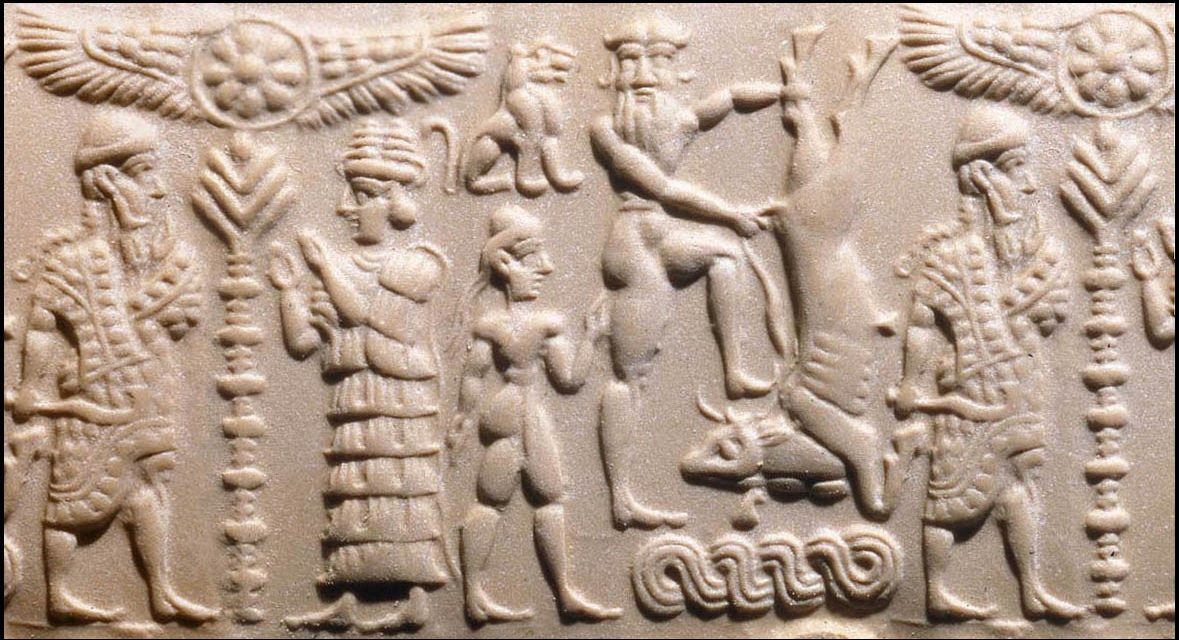Anwer Ghani – Three Poems
Light Wings
When the morning’s happiness was outpoured, and the foggy shadow secluded, at that moment I knew the sun had a pure splendid face and the light wings went to laugh with their full days.
O great woman, when the mask of the darkness which is perching on liberation’s chest falls, I will see all the towers, eventual smiles, and the glorious rain chants on your hands. O great Mary, from your heart corners all the dreams of rivers come and all universes have been loved by acquainted whiteness which cleaves the heart of grey time.
I watch your light wings and I listen to your deep voice with cheerfulness. I see your words on the lake’s face: “The peaceful one will defeat darkness by every loved word.” This will enliven the warmth in the cold mountains, overspread the greenness in the dry land, and will teach the earth the light realms in peace.
Mud of the Infinity
For the Great Sin Leqi Unninni
I love the mud, because it was a memory of your great hands. I feel pride when I see flights of arrivers sit at your door seeking some nectar from your immense secrets.
Explicitly, the scientists talk about the unlimited time and place, and you hid both in your simple clay where you marked your tablet with infinity. From your balcony of Uruk in warm Babylon’s afternoons, you look at us, the primitives, and send with the wind an old Iraqi tea. That honey colored wisdom and infinity which rejoiced with wilderness of Enkidu’s deer. Yes, your hands defeated aging and death, because you saw the secrets. O Sin Leqi Unninni, you look at us and smile, because you are the one ‘who saw the deep.’
*Sin Leqi Unninni was the writer of Epic of Gilgamesh.
*(Who saw the deep) is a phrase from Epic of Gilgamesh.
Light lavaliere
Your carnelian was submerged in ice tobacco and your azure trees smiled at the waterfalls of Mashu Mountain, where the secret springs of the universe were immersed in the dust of brown towns and misted by the breeze.
O Uruk, the white wings of your blooming spirit told the earth the tale of light, which had been colored by the shawl of a girl gathering dates from her father’s small garden.
I wasn’t amazed by those distances which were crossed by knees and bare feet, or by time’s disguise which is falling in your hall as a wax image. For this, the mightiness of earth bends with astonishment at your ancient glitter, where the Scorpion Men irrigate beds with silver water. They draw my soul in a shape of a brown bird, and give me a coppery kiss, so I fly as weightless vehicle which saw a new face of the moon.
Didn’t you teach me the brown summer? Didn’t your hot sands slap my face? Didn’t Euphrates immerse my dream with angles? Because of this, I became a bitter voice of light’s lavaliere.
*Carnelian: azure trees,
*Mashu Mountain and Scorpion Men are characters in Epic of Gilgamesh.
Author’s Statement on Beauty
Our world in its essence is a transfiguration of beauty and all of us appreciating it. We can see the immense impact of the colors and perfumes on our daily life, and our existence is simply an incessant attempt to find beauty.
The seeking of beauty is an innate desire, and as we can’t live without food, we can’t live without beauty.
One of beauty’s pages in our life is writing which, by its admirable styles, enlivens the lands of hope and illuminates the areas of darkness. Beautiful writing can change our awareness about ourselves and the world in addition to its innovative features which make us fly with cheerfulness and jaunt with delight.
These conscious and subconscious effects of writing occur as a result of the strong relationship between the language and our minds, of the powerful effect of writing on our minds’ embodying and the final appearance of our existence. Language is the central tool in the organization of thought, and any conception about anything should occur through the meanings, through the language. If we want to change any situation we can do that by the universal changes in our words about it, and sometimes this is the only way to create change.

Anwer Ghani is an Iraqi poet and literary theorist, and the author of 40 books in literature and religious science. He was born in 1973 in Hilla city, and he lives in Iraq now and worked in a hospital as consultant physician. He had 4 poetry collections in Arabic: Language 1, 2014, Language 2, 2015, Language 3 and 4, 2016, and a detailed book in prose poem theory consisting of four volumes with unique ideas and post-stylistic criticism.

